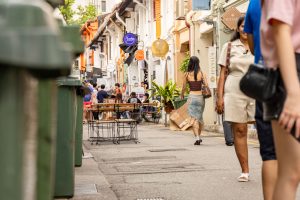My highest qualification in Econs was the time I thought it would be a good idea to take H2 Economics in JC and was forced to draw supply and demand graphs to prove basic competency for A-Levels. Yet, my editor in his infinite wisdom tasked me with assessing each party’s plans for the economy.
“Just keep it within a scope that’s manageable for you,” he tells me soothingly.
Don’t be silly, I want to tell him. The average Rice reader doesn’t care about the economy. They care about civil liberties, minority rights, social justice, and sex toys. I guess he read too much Calvin Cheng and decided that “bread and butter” issues are important INSTEAD OF PANDERING TO OUR READER BASE.
So now I have to spend time working on this boring-ass article so Rice can pretend we are contributing to “national discourse” in this general election.
In utter despair and total desperation I do what Singapore does best when we lack capacity to do things ourselves: outsource. I message Donald Low, our (non)resident dissident—sorry, economist—asking him for his expert commentary. Instead, I get a text: “Sorry, I haven’t looked at the manifestos; am swamped at work… 😔”.
What kind of keyboard warrior doesn’t bother reading the manifestos?! (Fake). But he sent me a sad emoji, so all is forgiven. (Update: shortly after, Donald uploads pictures of himself hiking at yet another Hong Kong mountain. Busy, indeed.)
I guess I have no choice but to assess economic policies myself. Luckily, this was a lot easier than expected, because most parties don’t seem to have visionary plans for the economy.
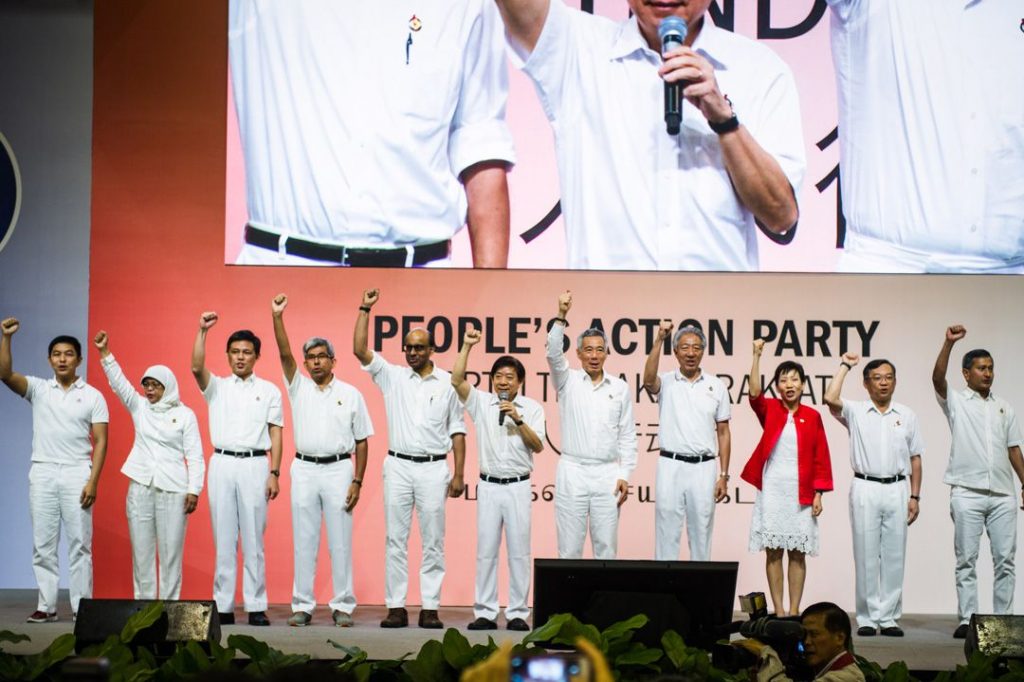
a) the “economy” is one of their *pet topics* (I mean, their slogan is literally Our Jobs, Our Lives, Our Future) and
b) their manifesto was honestly pretty thorough and comprehensive.
Their covid-specific schemes include: the Jobs Support Scheme which provides wage subsidies to help you keep your jobs, the Self-Employed Person Scheme (SIRS) which gives income relief to self-employed persons and freelancers, and the Temporary Relief Scheme (TRS) and the Covid-19 Support Grant (CSG) which gives financial assistance to retrenched workers or those suffering significant income loss. They also want to help businesses stabilize from the impact of Covid-19 and are helping with cash flow, costs and credit, passing laws for rental relief, and providing extra help for hardest-hit sectors such as aviation, hotels, tourism and retail.
For workers, they want to set up a National Jobs Council, create 100,000 new job opportunities under the SG United Jobs and Skills Opportunities programme, set up satellite career centers in all HDB towns, scale up programmes for career conversion and for skills upgrading and mastery with the Next Bound of SkillsFuture, strengthen safeguards for jobseekers under the Fair Consideration Framework, and provide financial incentives for employers to hire or redeploy their local workers.
They are also offering workers aged 40-60 extra SkillsFuture credit and heavily subsidized reskilling programmes, mid-career pathways, and special incentives to employers for hiring them. They are encouraging hiring of senior workers through the Senior Employment Credit, grants for re-employment, and support for firms and industries to redesign jobs.
For younger job seekers, they promise to strengthen career support for new graduates, create structured traineeships with firms, offer free continuing education and training, and preparation for regional opportunities through the Global Ready Talent Program. For lower wage workers, they pledge to improve jobs and earnings through enhanced Workfare support and extending the Progressive Wage Model to even more industries.
For their economic vision, they want to accelerate digital transformation of all industry sectors, help firms innovate and adapt with Transformation and Growth Packages, give SMEs extra support through SMEs Go Digital, SkillsFuture Enterprise credits and other grants, and promote new growth sectors—e.g. innovation and technology, biomedical, ICT, professional and digital services, cybersecurity, food manufacturing, medical care and education.
They also want to establish green lane arrangements for safe travel with other countries, expand trade networks, and participate actively in the global digital economy.
If all this sounds like a lot, that’s because it is. By the time I’ve finished reading the manifesto I’ve already forgotten what the acronyms are supposed to stand for. But I get the feeling that the economy is Very Important for the PAP and they are rolling out lots of targeted schemes to help different segments of workers. I’m less convinced by their economic vision for the future because the stuff they are saying has been said before.
So, more of the same?
I’m slightly disappointed because there’s no real talk or discussion about how/whether we plan to pivot our economic model (e.g. reduce FW reliance), especially in the aftermath of national debate. Also, *digitalize* is a trendy buzzword but as the PSP pointed out, we’ve been saying this for donkey years. So what’s going on? What has Smart Nation and Digital Office (SNDGO) been doing?
Basically, the PAP’s manifesto reads like the CV of the partner your parents want you to date: stable and successful, but boring, and predictable.
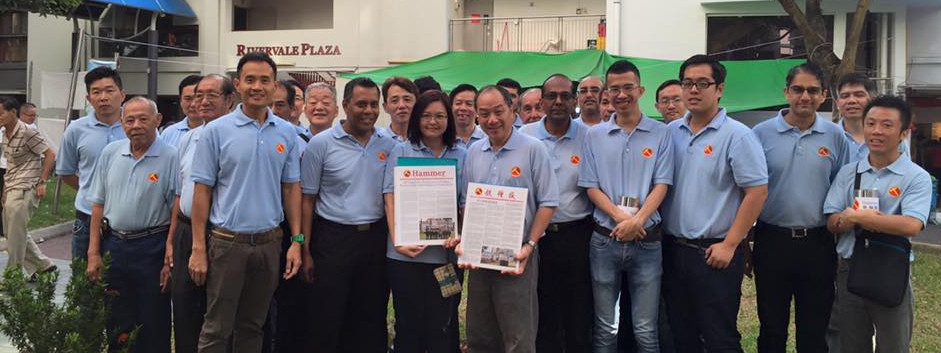
Minimum wage is floated again: they call for “all working Singaporeans to receive a minimum take-home wage of $1,300 per month for full-time work and prorated for part-time work.” $1300 is the minimum deemed necessary “according to government data” (no mention of how this number was arrived at, but close enough to the “living wage” proposed by LKYSPP ($1379/month for single elderly households).
I think the PAP should just come out and do a better job of explaining why we have the Progressive Wage Model (PWM) instead of minimum wage. They’ve pretty much admitted that the PWM is like a sectoral minimum wage for the cleaning, security, and landscape sectors. So as a voter I want to know, what’s the difference? Or is it just that Progressive Wage Model is two more syllables than minimum wage and therefore less catchy? Or maybe the PAP just don’t want to admit that PWM is basically minimum wage so they don’t have to give opposition parties credit and be accused of *yet again* “stealing their ideas”?
The WP wants to finance an Export-Import Bank (EXIM) to finance SME internationalization, form a National Secretariat for Enterprise to spur job creation in sunrise industries, nurture silver industries, and keep commercial and industrial rents manageable (they want JTC to expand its market share for industrial space, and to continue offering low-rent options for SMEs. They also call for HDB to offer low-rent commercial spaces to stimulate micro-businesses and entrepreneurship in the heartlands).
Re: workforce, they want to abolish retirement age, address the gender wage gap, make Careshield Life premiums gender-neutral, recognize unpaid labour, introduce shared parental leave, support employer workforce re-entry programmes for mothers and informal caregivers, and legislate against discrimination (TAFEP only provides guidelines; we don’t have anti-discrimination laws yet). Kudos to WP for their *critical*, social justice-y, gendered-lens to look at the workforce.
Similar to most other opposition parties, they also want to tighten Employment Pass (EP) approvals, introduce EP credentials assessment, create incentives for employers to hire Singaporeans, and introduce redundancy insurance.
Overall, the WP’s economic policies sounds like the best of PAP + a mix of all the other opposition parties combined (vision + concrete policy suggestions + social justice + a sprinkling of some #SingaporeansFirst). In the end, it feels like I’m reading a McKinsey slide deck—clean, polished, sounds good in theory (not sure about practice yet).
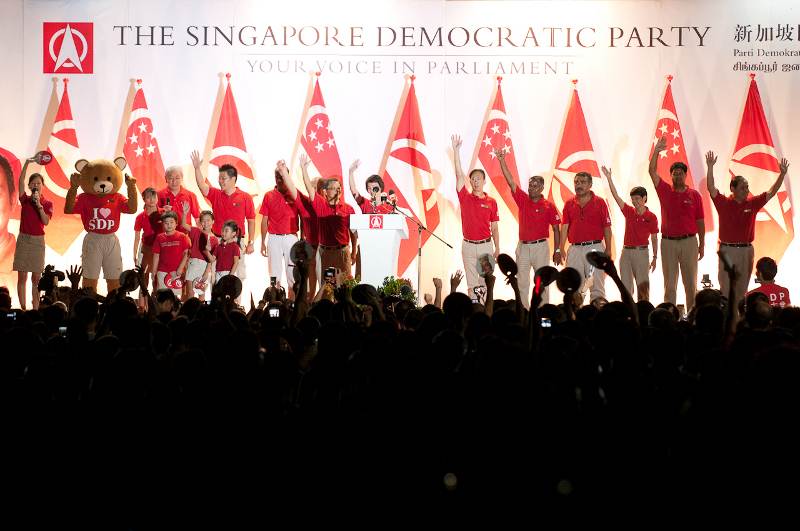
While I wait for my copy to arrive, I trawl through their site to see if I can find any *free* information to write for this article. The SDP’s main economic policy is RESTART (Re-Employment Scheme and Temporary Assistance for the ReTrenched). Under RESTART, if a worker is retrenched, the government pays 75% of his/her last drawn salary for the 1st 6 months, 50% for the 2nd 6 months, and 25% for the final 6 months (capped at the median wage).
I struggle to find other things to write about that are specifically economy related. (Sorry SDP, next time we rank parties on *civil liberties* I promise you’ll get more space).
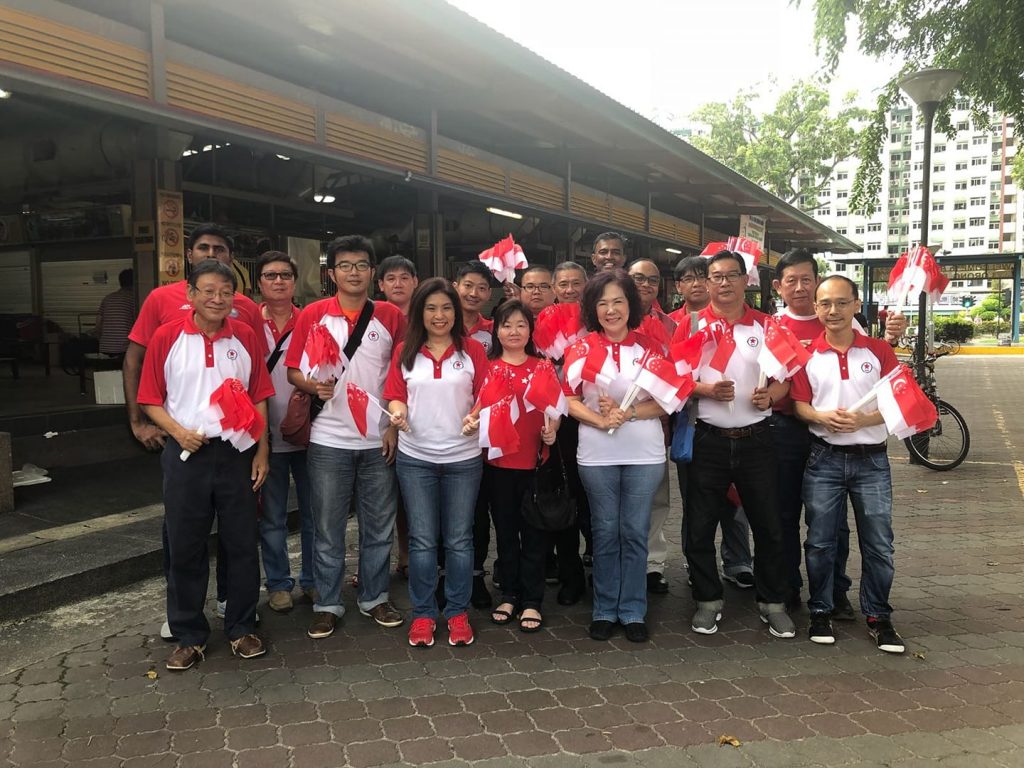
They propose unemployment insurance to be mandated for all Singaporean workers, for a period of 6 months, funded by employee and employer contributions. They also want employers to give employees retrenchment benefits in accordance with TAFEP guidelines, and for them to be codified in law. Their unemployment insurance sounds like a less ambitious/more practical (depending on your ideological convictions) version of RESTART. Sorry, but I think the SDP’s acronym is cooler.
The SPP also says that FTAs should be regularly evaluated and if necessary, re-negotiated “to ensure they serve the best interests of the Singaporean Worker.” I’m assuming this is a roundabout way to criticize CECA (without calling out any one particular country or appearing xenophobic). Good on you for not resorting to cheap slogans to win votes.
They call for the Government to be “more transparent in showing evidence of how FTAs have benefitted the Singaporean Worker.” I agree. Or maybe it’s not just about transparency but also about doing government commz better (@Gov.sg).
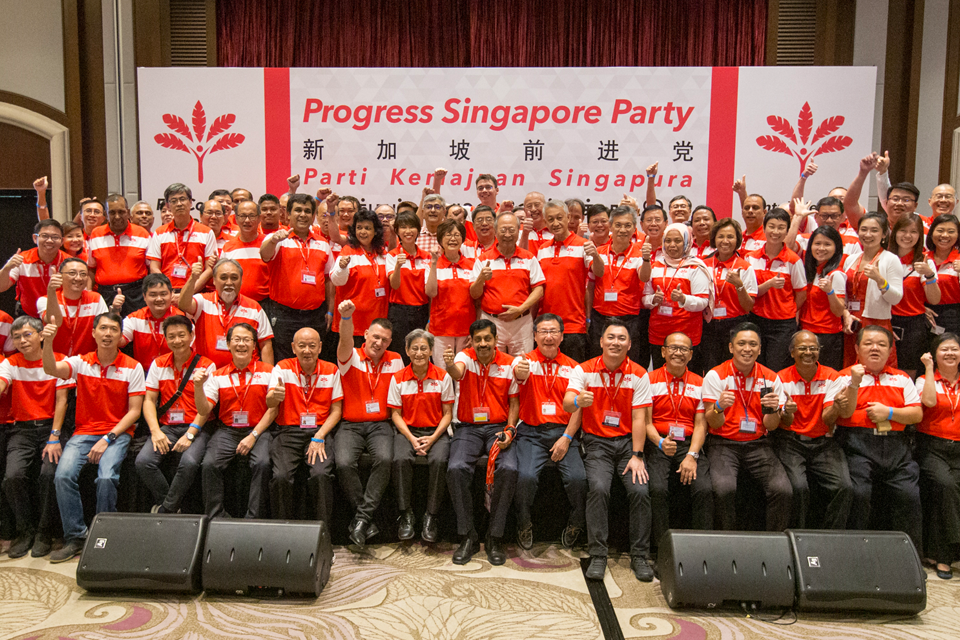
The PSP is very clear about what its priorities are: “bolder economic stimuli”, and “stronger support for SMEs that employ 70% of our workforce”.
They’ve mapped out four key areas:
1) Jobs for Singaporeans (job priority for Singaporeans, introduce quotas for Employment Pass, lower quota for S-Pass and Work Permit, and review FTAs like CECA);
2) Assistance to Local SMEs (priority in public sector procurements, invest in local SMEs, direct support to SMEs to restructure and venture abroad, and reduce business costs);
3) Reduce Dependence on Foreign Labour (curb easy supply to push employers to raise productivity; move towards higher value-add and higher wage model); and
4) Introduce a Living Wage (increase amount of WorkFare and cash portion to 80%; and after the economy stabilizes, to introduce the Living Wage to all sectors).
Most importantly, they are probably the only party that outlines not just what policy goals they have, but also what values those policy goals are underpinned by. They’re very clear about what they stand for: focusing on quality of life, not just economic growth for its own sake; the belief that anyone who puts in an honest day’s work should earn enough to live in dignity; and the need to focus on SMEs. (This is not to say that other parties don’t believe in similar things; just they’ve done the best job so far in articulating these values in their manifesto)
After all my criticisms about what the PAP’s manifesto lacked the PSP’s feels like a god-send. I suppose with all things though the devil’s in the details; critics can always question how they plan to reduce dependence on foreign labour and the practicality of those policies.
A tiny niggle I have concerns how they just threw in the line, “Maintain balance between economic development and environmental protection for the sake of future generations.” It feels like a cheap gimmick to attract environmentalist types, when I don’t see any concrete policies to address that. If you don’t care, then don’t pretend to care leh. If you care, then make sure you got details to back you up, can?

Their font is also very ugly and hard to read. Who the hell is their graphic designer?!
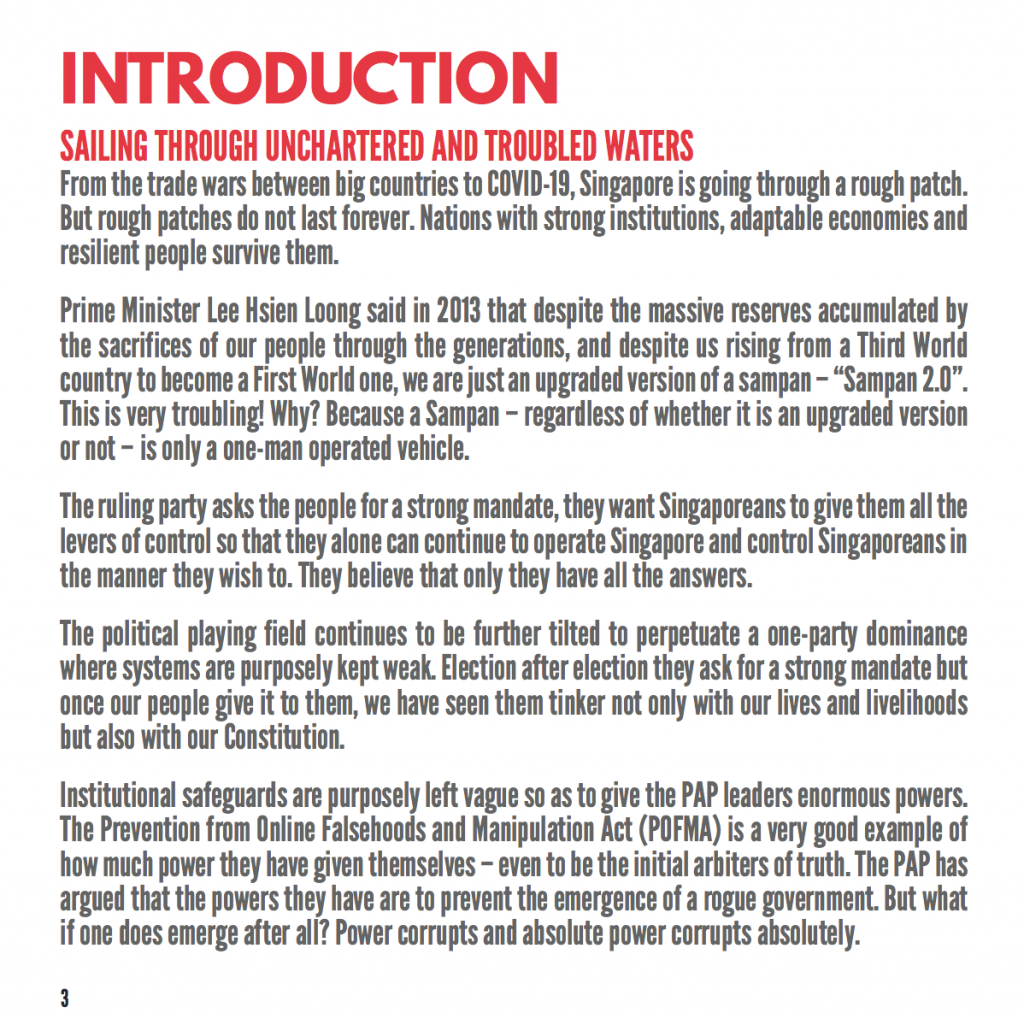
Unlike the SPP they don’t bother skirting around the issue and straight up calls for “Review of FTAs like CECA to show how Singapore and Singaporeans have benefited from this agreement—how many local jobs have gone to Indian professionals, and how many Singaporeans have gone to countries like India.” In line with nativist consistency, they call for a #SingaporeanFirst hiring policy and a reevaluation of the effectiveness of the Fair Consideration Framework.
They also call for “more protections to workers working under the gig economy”, particularly in the classification of workers as employees or independent contractors. Also calls for revisions of The Employment Act to clamp down on errant employers and prevent them from abusing this distinction to avoid giving benefits to employees. This sounds like a great proposal. If the PAP steals—sorry, adopts—their ideas after this GE they better credit the RDU.
Unlike the other smaller opposition parties, they’ve also laid out their proposed economic vision fairly clearly. They want the government to prioritize SMEs, calling for the G to “provide pathways for SMEs to partner GLCs/MNCs to venture overseas”, “support growth and development of local SMEs” and “study development of greater synergies with land-abundant neighbouring regions.”
It all sounds eerily familiar, then I realize it’s because I heard Francis Yuen say similar things at the PSP press conference I attended. So … both RDU and PSP magically zeroed in on the same policies? Or maybe it’s because Michelle and Ravi were both from PSP so there was a “natural exchange” of ideas? Who copied who? Either way, I’m glad the ideas are there on paper for citizens to debate, if they’re debated at all.
No mention of policies to help lower-waged workers though, and the only progressive idea they throw in is in half a sentence at the end of their jobs section—“something something SMEs and a progressive tax policy”. No mention of what that would look like, e.g. how top income tax rates (currently at 22%) should be revised, whether we should reintroduce estate duties, or increase wealth taxes. Just, “a progressive tax policy”. (But who cares? #EatTheRich.)
Still, not bad for a PSP-offshoot/newbie party whose name sounds like a club in a third-tier football league. Too bad they’re contesting in Jurong, Tharman’s GRC, and too bad Ivan Lim has withdrawn.
In the end, I’m inclined to the give the gold star to the PAP for *most comprehensive* manifesto wrt to economic policies even though I find other manifestoes more compelling. (But values! And vision!)
After all, are we really surprised that the PAP is winning in a category they are known for being best at? (Opposition parties focused far more on protecting civil liberties, redistributive efforts, and stronger social safety nets). But hey, at least it’s an apt metaphor for our electoral system: ownself make own rules, ownself select criteria, ownself deem ownself best.
And at least I finished this damned assignment. God bless.





